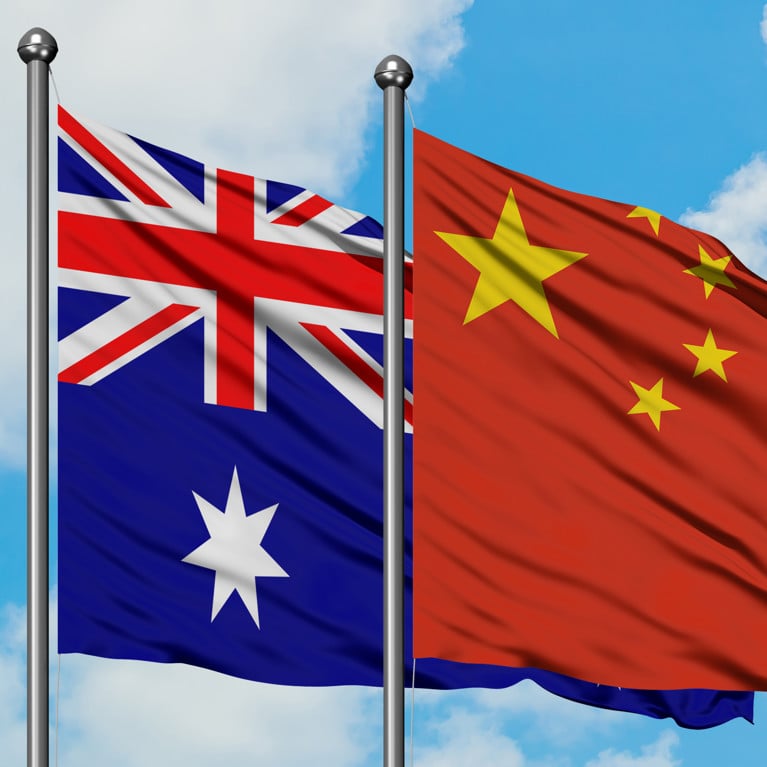- Posted on 16 Apr 2025
This article appeared in Crikey on 16 April 2025.
In Labor’s campaign launch over the weekend, Anthony Albanese didn’t make any reference to China, but Peter Dutton did. Advancing a litany of issues on which he disagreed with Albanese, at his launch Dutton said the Labor leader was weak ‘when the Chinese Communist Party warships tested their weapons off our coast’ and ‘circumnavigated our country, and but for our commercial pilot, the prime minister wouldn’t have done anything about it’.
Delivered with palpable pathos and a sense of deep concern, Dutton’s China talk not only portrayed his opponent as weak, but also tapped into community fears about Australia’s national security, conjuring up an image of the nation as literally besieged by a trigger-happy, war-hungry China ready to take over Australia.
You’d be right in thinking, ‘haven’t I seen this movie before?’ Indeed you have. As defence minister, in 2022 Dutton compared China and Russia to Nazi Germany before World War II, telling Australians ‘the only way you can preserve peace is prepare for war’.
So, what’s new? What’s new is that Dutton’s position on China, like several of his other policies, seems to have done yet another somersault. He and his party are painfully cognisant of the damage a tough-on-China rhetoric could inflict on those marginal seats with high concentrations of Chinese voters, as was the case in the last election.
Dutton therefore declared that he was ‘pro-China’ in June last year, and that he wanted to see trade with China double, prompting some media outlets to remark that he had ‘morphed from a hawk into a dove’. From then on, he had been quite ‘disciplined’ in his China rhetoric, refraining from criticising China directly and leaving the bad cop role to junior colleagues such as James Paterson and Andrew Hastie.
For a couple of months at the beginning of this year it seemed Dutton was managing to walk the tightrope of speaking simultaneously to two audiences: Chinese-Australians and his right-wing constituents.
But then two things happened to upset the balance. First, the Chinese warships arrived off the coast of Australia, and Labor’s calm response afforded Dutton a too-good-to-miss opportunity to score a point against his political opponent. Second, while earlier reporting showed a Liberal lead, recent polls seem to predict a shift towards Labor, forcing the Coalition to recalibrate the costs and benefits of its position, with getting tougher on national security a logical move going forward.
This shift was most clearly articulated in Dutton’s foreign policy speech on March 20, during which he said that as far as China is concerned, ‘red lines need to be made clear’. He told his audience that the Coalition would tolerate neither foreign interference targeting Australians of Chinese ancestry, nor the Chinese Communist Party’s military aggression against ‘our men and women in uniform’.
It is quite likely Dutton was hoping there could be a ‘Chinese wall’ to ensure that these words, delivered to a Lowy audience, would not reach Chinese-Australians. While many Chinese-Australians may have indeed missed his Lowy speech, few could fail to notice his ‘hawk–dove–hawk’ seesawing.
So, when another Chinese vessel — this time a joint research endeavour with a New Zealand team — was spotted off the Australian coast, he leapt at the opportunity to have another go at his political rival, saying that the Chinese ship was mapping Australia’s undersea cables.
Albanese was frankly speaking his mind when asked by journalists about the research vessel. He said China hadn’t broken international law, but that he’d ‘prefer that it wasn’t there’. Acutely aware of his opponent’s impulse to use China to project a tougher stance on national security but proud of having carried out a ‘calm and consistent’ China policy, the prime minister needed the Chinese research vessel as much as a poke in the eye.
So we see a curious situation at this point in the election campaign.
While housing, the cost of living and tax are front and centre in the minds of many Australian voters, it is how the major parties respond to the two global powers that generates opportunities for political point-scoring.
As far as Labor’s campaign is concerned, China is not the issue, but the challenge of avoiding being wedged by the Coalition on China is ongoing. Anxious not to be wrong-footed on national security, at times Labor seemed to ditch its calm and consistent manual in the past few weeks. One example is Albanese’s announcement about the Port of Darwin lease.
In anticipation of the Coalition’s intention to announce its plan to take back the port immediately, Albanese acted quickly to gazump his political rival by making an impromptu call to ABC Radio Darwin late on Friday afternoon, claiming his government had been working on a plan to deal with the port lease for months. It seems that all of a sudden Australia has a bipartisan agreement that the 2015 leasing of the port to a Chinese-owned company by then prime minister Malcolm Turnbull and a Country Liberal-controlled NT government had suddenly become a national security risk, despite evidence the lease had been ‘examined … thoroughly’ by ASIO. The then-secretary of the department of defence, Dennis Richardson, described claims of security concerns over the lease as ‘absurd’ and ‘alarmist nonsense’.
Some may recall that Turnbull incurred the displeasure of the Obama administration over the lease. Ironically, the latest announcements from both Labor and the Coalition to take back the lease — a decision that would no doubt please the US — was made just after Australia had been thrown under the bus by Donald Trump’s tariffs, despite our status as a strategic partner and, as Trump said, a country of ‘wonderful people, and wonderful everything’.
The fear of being wedged could also be behind Labor’s immediate rejection of Ambassador Xiao Qian’s overture to ‘join hands’ to combat Trump’s tariffs.
Although neither of the two major parties wants to risk using blatantly anti-China language, the ‘Chinese influence’ card is clearly still on the table, and has been played by both parties via our media. Thus, while Dutton has been photographed with a ‘CCP-linked high roller’ associated with disgraced agent of influence Huang Xiangmo, the Coalition has demanded that Labor explain an alleged donation from ‘a senior member of a Chinese group declared an agent of foreign influence’.
One way or another, China seems to hover over the entire election like a spectre that comes and goes but is never completely absent. Clearly, while preferring that the China issue wasn’t there (to borrow Albanese’s words), Labor seems to have no choice but to try to anticipate any moves from its opponent in this space.



